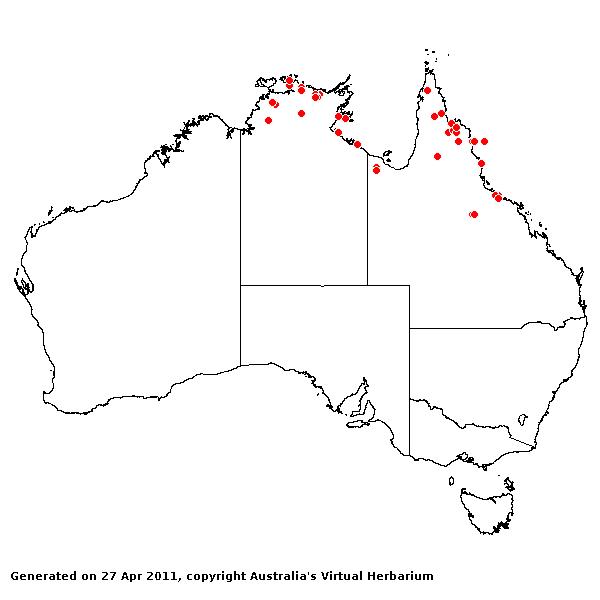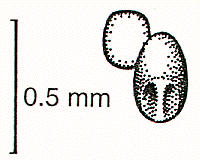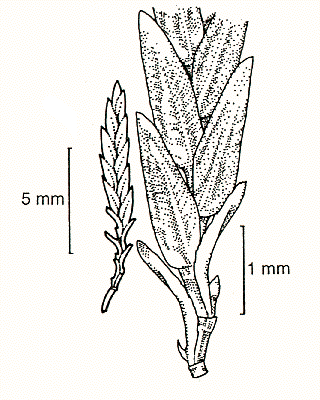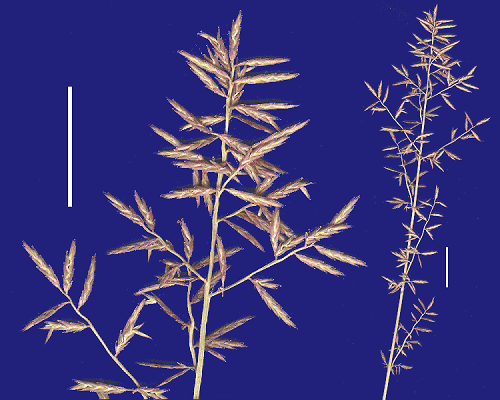Eragrostis stenostachya
(R.Br.) Steud. Syn.
Pl. Glum. 1: 279
(1854).
Classification. (GPWG 2001) : Subfamily
Chloridoideae. Cynodonteae.
Basionym and/or
Replacement Name: Poa stenostachya
R. Br., Prodr. 181 (1812).
Type of Basionym or
Protologue Information: Australia:
"(T.) B. v.s.".
Key references
(books and floras): [1878] G.Bentham, Flora Australiensis 7 (650),
[2002] D.Sharp & B.K.Simon, AusGrass, Grasses of Australia.
Illustrations:
[2005] K.Mallet (ed.), Flora of Australia 44B: Poaceae 3
(Fig. 65A-B).
Habit.
Perennial. Culms erect, 22–60 cm tall. Ligule a fringe of hairs, 0.1–0.3 mm
long. Leaf-blades straight, flat or involute or convolute, 5–15 cm long, 1–2 mm
wide.
Inflorescence.
Inflorescence compound, a panicle. Panicle ovate, 4–14 cm long.
Spikelets.
Spikelets sessile. Fertile spikelets many flowered, with at least 2 fertile
florets (6–27), comprising 6–27 fertile floret(s), with diminished florets at
the apex, linear, laterally compressed, 4–21 mm long.
Glumes. Glumes
similar. Lower glume lanceolate, membranous, keeled, 1-keeled, 1 -nerved. Upper
glume lanceolate, 1.1–2 mm long, membranous, keeled, 1-keeled, 1 -nerved. Upper
glume apex muticous.
Florets.
Fertile lemma 1.3–2 mm long, keeled, 3 -nerved. Lemma apex muticous. Lodicules
present. Anthers 3.
Continental
Distribution: Australasia.
Australian
Distribution: Northern Territory, Queensland.
Northern Territory: Darwin &
Gulf. Queensland:
Cook, North Kennedy.
Notes.
Distinguishing characters include erect or stoloniferous habit; sheaths
relatively long and tight on culms; acute blades; panicle of stiffly spreading
or reflexed branches and spikelets; spikelets strongly compressed, closely
flowered, linear; rachilla subpersistent, flattened, thickened, with a
prominent constriction at base of lemma; membranous to subindurated, dissimilar
glumes; relatively short palea keels; strongly compressed caryopsis.
Endemic;
occurs in N.T. from Darwin across to Arnhem Land and the Islands in the Gulf of
Carpentaria, and then from N of Cooktown to Townsville in Qld. Saline meadows
and sandy loam soils; low-lying undulating plain.; flowers Mar.-May, June,
July, Oct.; fruits Mar.-May, June, July, Oct.





